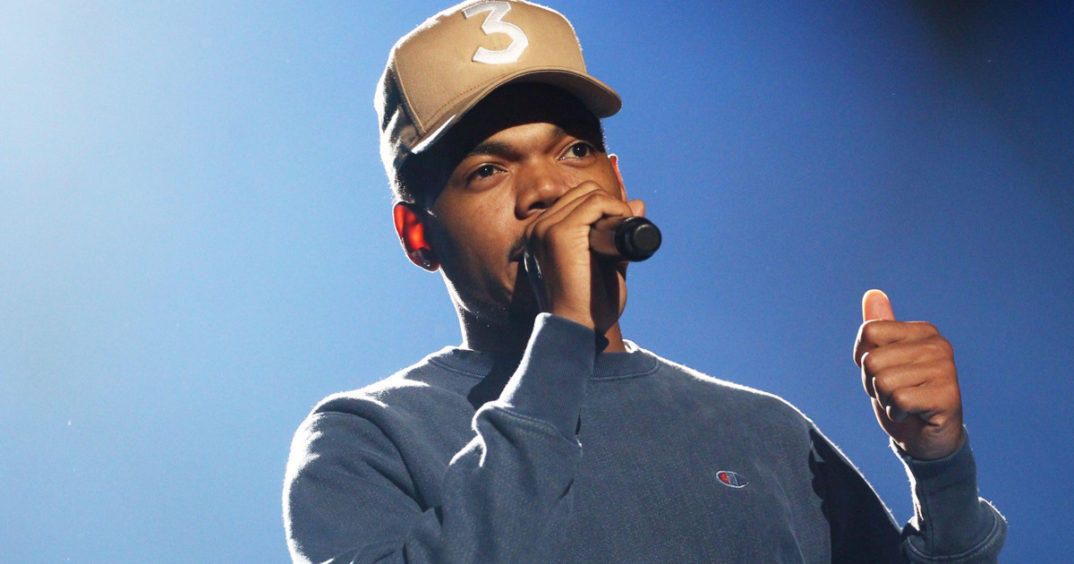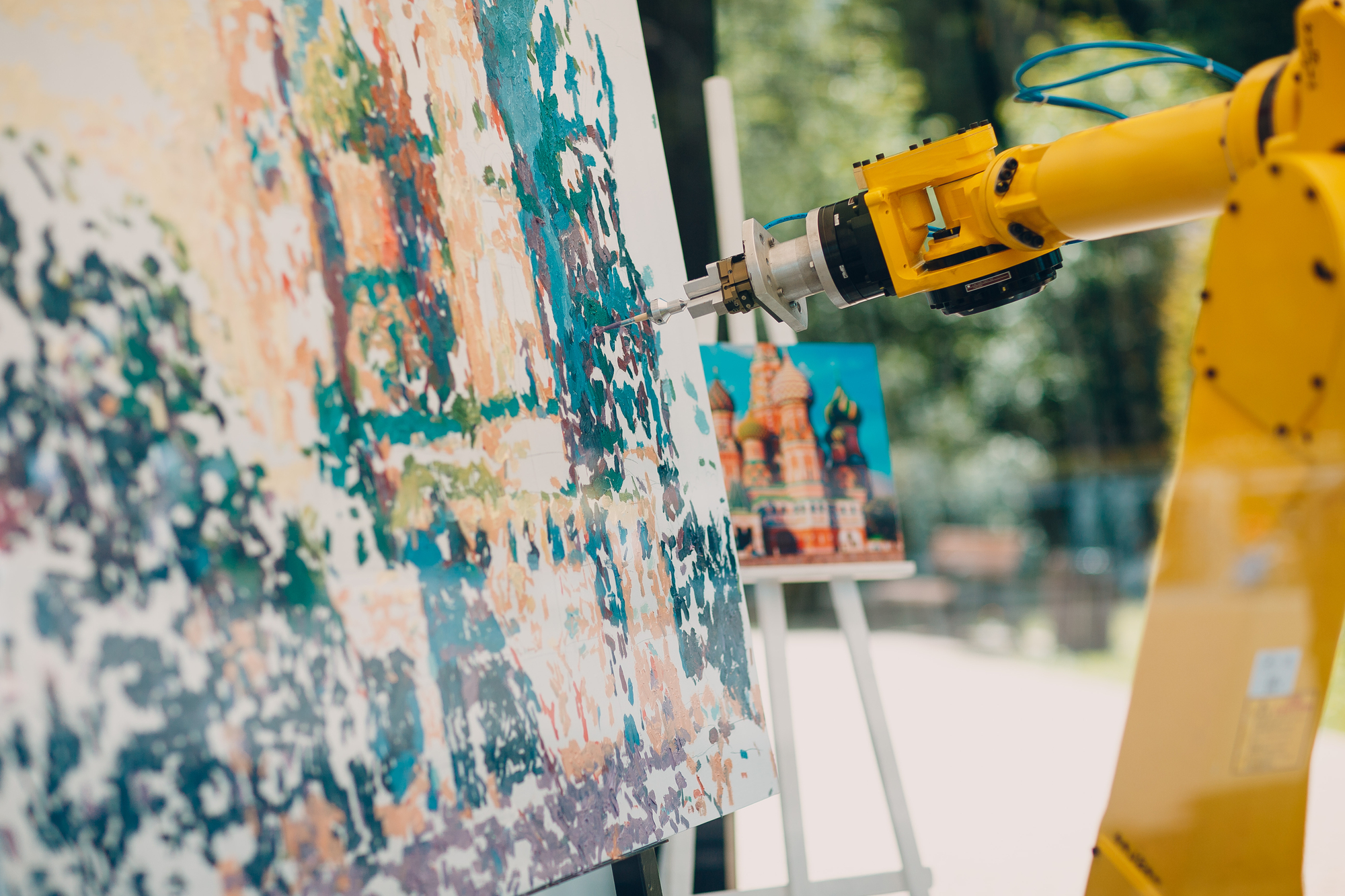In Chance the Rapper’s Music, Do Rap and Religion Mix?
Chance the Rapper has taken the music industry by storm. From his first popular mixtape, 10 Day, to his most recent EP, Coloring Book, which won him critical acclaim and three Grammy awards, Chano has become a powerhouse in the entertainment industry. His quirky charisma, spunky beats, and clever wordplay have resonated with all kinds of listeners. But with Chance’s skyrocketing fame, there comes a price.
With any established household name should come a heightened sense of caution, for celebrities are put on a pedestal, and anything they say or do is scrutinized almost obsessively. This notion of caution applies to Chance and his music, for the rapper has become very open about being a Christian. For instance, during Chano’s song “How Great,” one of the tracks off of Coloring Book, before Chance begins rapping, the hook goes, “And my heart will sing how great is our God, name above all names, worthy of all praise.” Chance’s verse after the hook echoes the same gospel influences. Despite Chance’s superstardom and influence through his music, the gospel themes that he has incorporated into his music proposes the question: should rappers include religious beliefs in their music?
Anyone taking a first glance at the proposed question above would most likely give a resounding “yes.” But is this question really that easy to answer? Then again, Chano isn’t the first to fuse religion with rap music. Kanye West shook up the rap game when he dropped “Jesus Walks,” a track about navigating the dangers of the world through God. Christian rap and Christian hip-hop have been a form of music long before Chance, but the rapper from 79th garners a larger following than traditional Christian rappers such as Lacrae. According to Lance Burney, a staff writer for Noisey, Chance is a Christian who is a rapper, while Lacrae is a Christian rapper. Lacrae is assumed to only talk about Christianity, while Chance can be selective with how he demonstrates his religion through his music.
But then again, Chance even referred to himself as a Christian rapper in one of his songs. In “Grown Ass Kid,” Chance says, “Everybody finally can say it out loud, my favorite rapper a Christian rapper.” But maybe Chance fans still do not see him as a Christian rapper because of his songs that deviate from Christian themes such as “Mixtape” and “Big B’s.” On both tracks, Chance collaborates with rap artists such as Lil’ Yachty and Young Thug, rappers who are far from being associated with religion, for they rap about money and drugs.
Chance’s ability to pick and choose where he places religious influences in his music could be a factor in his music’s success, while also allowing him to avoid criticism. He’s not always pushing religion in every song, making it hard for critics to question his musical agenda. But Chance’s selectiveness with religion could also be interpreted as inconsistency, proposing the question of whether Chance should include religion in all of his music, or not at all.
Since Chance is so popular, his music reaches out to not only Christians, but it also reaches out to adherents of Buddhism, Judaism, and Islam. Though adherents of different religions enjoy Chance’s music, can it really resonate with them like his music might resonate with a Christian? It might create a disconnect between Chance’s music and listeners who aren’t Christian.This idea of a disconnect with his fans could mean trouble for Chano’s music in the future. After all, the stereotypical Christian is what makes some people cringe when they think of Christianity. The stereotypical Christian is based on black gospel, depicting a dancing black person shouting and waving their hands. The image of a stereotypical Christian is often considered universal for one’s definition of Christianity, in addition to common themes of strictness and judgement. This idea of Christianity is one that would push people away not only from the religion itself, but push them away from branches of the religion such as Christian music, explaining why listeners are more attracted to Chance than Lacrae. Listeners don’t associate Christianity with Chance like they associate it with Lacrae.
This image of a stereotypical Christian may cause people to shy away from Christianity, but as a Christian himself, Chance has begun to shift the definition of what a Christian is through his music. He shows his audience that people who follow Christianity come in a myriad of forms. Chance has often rapped about topics that would not be associated with religion, such as drugs. In Chance’s second mixtape, Acid Rap, he discusses doing drugs in many of the verses on his songs, hence the project’s name. In one song, “Chain Smoker,” Chance raps “Rappin’ trappin’ trippin ‘cid’ and sniffing glue and chewing Vicodin,” a reference to an assortment of drugs which is far from the gospel themes that he’s been rapping about in Coloring Book.
On the other hand, the entire reason that Chance is so popular is because of his uniqueness. And aren’t music artists supposed to be outspoken with their beliefs and if they are judged, stand by them? Perhaps it’s Chance’s maneuverability through his sound that allows him to demonstrate his beliefs. He works with a range of artists, so he can’t be confined to a single definition of his music. Or perhaps, Chance’s music will gain a definition over time, putting his religious sounds into question.
While Chance has time, he should seriously consider the themes that he incorporates into his music. How will he present his next project? Will it include the gospel influences of Coloring Book? Or will he return to his drug referenced rhymes from Acid Rap? Maybe his next project could even include both. The decision that Chance makes will be critical, for it will not only define religion’s place in an ever evolving sound like his own, but also rap in general. How Chance moves forward could possibly determine whether rappers must stick to religious themes in their music, or whether they can diversify their music without backlash.





